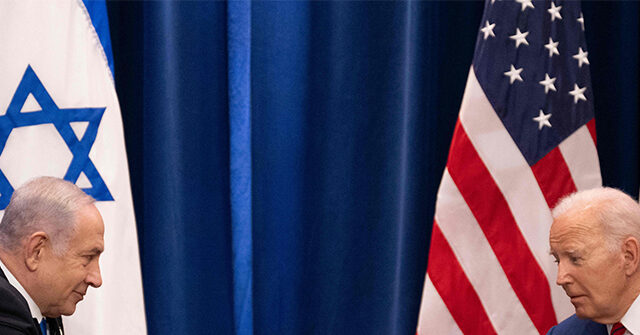Israeli Prime Minister Benjamin Netanyahu has reportedly acquiesced to a significant request from U.S. President Joe Biden, agreeing that Israel will refrain from targeting Iran’s oil facilities or nuclear sites in response to a recent ballistic missile attack. This decision underscores a delicate balance in U.S.-Israeli relations, especially following an unprecedented missile assault that was the largest in history. Although Biden reaffirmed Israel’s right to defend itself, he emphasized the need to avoid escalating tensions that could have far-reaching implications, particularly on the sensitive landscape of U.S. domestic politics and the upcoming elections.
During a recent call between Biden and Netanyahu, the Israeli leader indicated plans to focus on military targets in Iran instead of oil or nuclear installations. This shift reflects an understanding by Netanyahu of the political ramifications his actions could have on the Biden administration and its electoral scenario. Officials revealed that there was a consensus on the need for a more measured response to prevent triggering a major conflict while also adhering to the geopolitical interests of both nations involved. This indicates Israel’s strategic maneuvering to align its military objectives with the preferences articulated by the U.S. administration.
The recent agreement is notable in the light of the Biden-Harris administration’s decision to assist Israel by providing a Terminal High-Altitude Area Defense (THAAD) battery, manned by U.S. troops. This military aid serves not only as a deterrent against potential Iranian aggressions but likely acted as an incentive for Netanyahu to align his retaliatory plans with Biden’s counsel. Protecting Iran’s oil facilities and nuclear sites signifies a careful approach from both countries, aiming to manage tensions without igniting a broader regional conflict that could destabilize the Middle East.
In the context of this restrained military strategy, speculation arises around Israel’s potential actions following the U.S. elections on November 5. It is conceivable that Israel might conduct targeted strikes against Iran’s missile capabilities now and, should circumstances allow, proceed with more extensive military actions thereafter, positioning itself as a defender of regional stability against what it perceives as an ongoing Iranian threat. The timing and perceived nature of these strikes could be crucial, as Israel responds aggressively while managing the optics of any international backlash.
Furthermore, there are questions regarding the authenticity of the information being leaked about the Israeli plans. Concerns have been raised that this might be a strategic maneuver to disguise Israel’s real operational intentions, indicative of a broader tactic in international relations where states utilize misinformation to maintain strategic advantages. Such tactics can serve a dual purpose: avoiding direct confrontation while preparing for more decisive measures when conditions are deemed favorable.
The situation exemplifies the complexities of international diplomacy, especially in a volatile region like the Middle East. As Netanyahu navigates pressures both from within Israel and externally from the U.S., the balance between self-defense, regional stability, and the implications of U.S. elections reflects a critical juncture in Israeli foreign policy. The implications of these decisions extend beyond immediate military action and highlight the intricate interplay between national security, international relations, and domestic political considerations that both nations must carefully balance moving forward.

